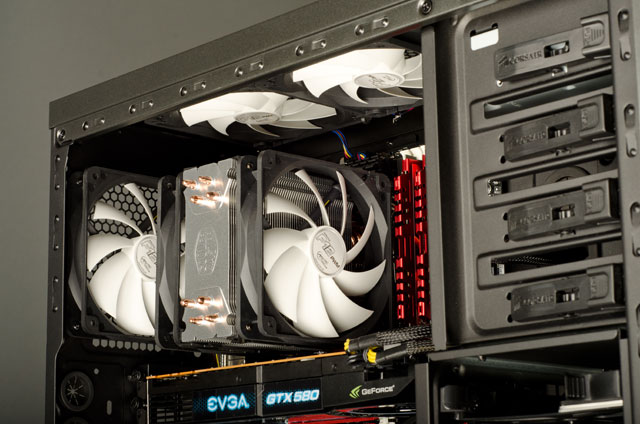Given the wide variety of keyboards available and the many formats, it might be difficult to make a decision while setting up your computer, arming yourself, and selecting a gaming keyboard.
You may learn everything you need to know about the subtle differences between mechanical, membrane, and optical keyboards in this article.
The touchscreen keyboard
To start, you should be aware that the switches on each keyboard are what make them unique. In the viewpoint of the general public, the membrane keyboard is the oldest and most well-liked keyboard.
It has traditional switches with typical responsiveness and activation force. It is perfect for workplace automation and casual gaming.
Additionally, despite occasionally being noisy, it is typically quieter than a mechanical or optical keyboard. Getting your hands dirty is perfect if this is your first setup.
This keyboard is mechanical.
For gamers looking for performance, the mechanical keyboard will be great because it is the best keyboard for competitive gaming. Overall, it has quicker activation times and quicker response times!
Additionally, each player has the chance to pick the mechanical keyboard that suits them thanks to the several switch brands available, including Cherry MX, Kailh, Gateron and the Red, Brown, Silver, etc. variations.
Even while some individuals might find the noise distracting, typing on a membrane keyboard is far more enjoyable and the sound reproduction has an impact.
The electronic keyboard
The way a key is activated on the optical gaming keyboard differs from how it is on a mechanical keyboard.
On an optical keyboard, as opposed to a conventional mechanical keyboard, the keys are actuated by coming into contact with light.
The optical keyboard outperforms the mechanical keyboard in terms of performance, activation speed is fast, and the keys are more durable, allowing the keyboard to endure the test of time!
What Are the Best Switches for Gaming: Optical or Mechanical?
For quite some time, mechanical keyboard switches have been the standard because they provide the speed, toughness, and responsiveness that gamers require.
But as optical switches grow in acceptance, we must consider which is optimal for gaming.
This article describes the differences between mechanical and optical switches and recommends the keyboard switch we believe is ideal for gaming.
How do optical and mechanical switches function?
A metal piece on the bottom of the key and one on the keyboard must make contact in order for mechanical switches to function.
By doing so, the circuit is closed and a signal is sent to the computer letting it know that the key has been pressed.
Mechanical switches can be classified as linear, tactile, or clickable. When pressed, linear keys are quieter, require less pressure, and offer no tactile sensation. Louder and producing a bump in the center of the keystroke are tactile keys.
On the other side, noisy yet pleasurable clicky keys provide a larger bump and a loud “click” in the middle of the keystroke.
Optically switched, however, employ a method known as light induction. When you press a key, the stem—the portion that typically makes contact with the keyboard—blocks an infrared light beam.
The absence of light is then detected by an infrared sensor, which informs the computer that a key has been pressed.
The two switches are very similar in terms of mechanics. For instance, when you press down on the cap, the rod is pushed down and then the cap is pushed back into place by a spring.
Additionally, optical switches may resemble mechanical switches in that they are more linear, haptic, or clicky.
Mechanical or optical switches
When determining which mechanical switch is best for gaming, you need to take into account a few key factors. These consist of:
- How many keystrokes can the keys withstand before breaking?
- How quickly can you turn the key?
- How nice are the keys to press, in your opinion?
- How audible are the keys?
Sustainability
The manufacturer has a significant impact on the typical lifespan of mechanical or optical keys. Nevertheless, the majority of optical switches available now have a lifespan of roughly 100 million keystrokes.
In contrast, only Cherry MX asserts that their mechanical switches have a life expectancy that is comparable to this.
In comparison to optical switches, the majority of mechanical keyboard brands estimate their keys can withstand 50–60 million keystrokes.
However, keep in mind that 50 million keystrokes translates to roughly 10 to 15 years of intense gaming or typing, which should be sufficient for the majority of people.
Speed
The force needed to operate switches and the distance the key must travel both have an impact on how quickly they operate.
A five millisecond debounce delay is also present in mechanical switches. On the other hand, optical switches are completely immune to this delay.
As a result, optical switches will often have a response time that is around 5 ms faster. On whether this little speed increase significantly improves gameplay performance, the jury is yet out.
Other than that, it appears that the manufacturer has a significant influence on how quickly optical switches react.
The Razer Optical Purple Switches seem to be the main earners. These keys are around 30ms faster than the fastest Cherry MX keys and are advertised as some of the quickest on the market.
Noise and emotion
Like loudness, the way the mechanical or optical keys feel mostly relies on personal preference. You’re more likely to find a mechanical keycap set that matches your preferences if there are more variations available.
You can choose from linear, tactile, or clicky keys for mechanical switches. In other words, you can select satisfying, quiet, quick, or any other compromise.
Simply put, optical keyboards don’t offer as many alternatives. You might be fortunate and like the standard keys on an optical keyboard, but most people won’t.
So optical switches or mechanical switches are better for gaming?
For gamers, mechanical switches continue to be the standard. When compared to optical keyboards, mechanical keyboards have a vastly greater selection, which makes sense given that optical switches are still a relatively new technology.
As a result, many people are still hesitant to switch to an optical keyboard.






